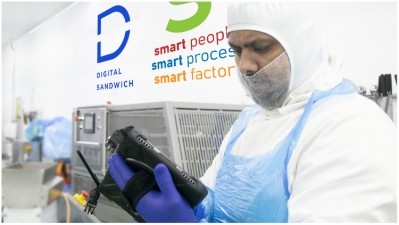Opinion
Sharing sustainability gains throughout the supply chain

With COP27 in the rear-view mirror, most major food manufacturing brands have now committed to long-term sustainability pledges and carbon net zero targets. But what of smaller suppliers? If the likes of Coca-Cola – with all its resource and billions of pounds of research and development - are battling to reach ambitious climate targets, how can challenger and growing brands expect to be able to hit their own?
While they can’t fight on a level playing field financially, smaller suppliers have the upper hand in that they are much more agile than their more corporate compatriots.
This works on two fronts – agility in operations and in structure. As a smaller operation, innovation in terms of operational processes is typically quicker and easier to implement, meaning that the benefit is seen more readily.
Small versus large
In terms of corporate structure, those smaller suppliers are likely to be much less cumbersome than larger businesses. For example, the engineering manager on a production line in a growing business is much closer to the managing director – and, importantly, the finance director - than they would be in a multinational corporation and will therefore have a more direct line to having improvements and ideas heard, again speeding up implementation.
However, for these great ideas to spread, there needs to be two-way communication from the bigger suppliers to the smaller and vice versa. While those toward the top of the supply chain will typically apply a Pareto approach to working with suppliers, they need to ensure that they are finding ways to engage with the entire supply chain.
When this happens, you create a culture of shared learnings, which can bring incremental gains for all and bring everyone closer to the ambitious sustainability targets the food manufacturing industry faces.
Case study
This is exactly what we found in the work we did with Walmart to improve its supply chain engagement and data collection. In total, the retailer eliminated over 20 million metric tons of greenhouse gas emissions from its supply chain and this was driven to a significant degree by changes that started in smaller projects.
One example of this is that, through communicating en masse with its supply chain, the retailer found that one supplier had found a way to use a waste product – in this case, the pit it was removing from olives – as biofuel, drastically reducing its environmental impact.
This knowledge was then shared throughout Walmart’s supply chain using the Supply Pilot supplier engagement platform, with several larger suppliers taking this learning and looking into using its own by-products as fuel. This was an international business with huge opportunities across many areas to affect change, but by finding a way to engage with all suppliers rather than a select few, it was able to identify multiple areas in which incremental gains were able to be made.
A rising tide lifts all boats, so whether it's packaging reduction or logistical efficiency that has an environmental benefit, you need to capture the impact that it’s having, and find a way of sharing that throughout the supply chain to drive real sustainable change.















